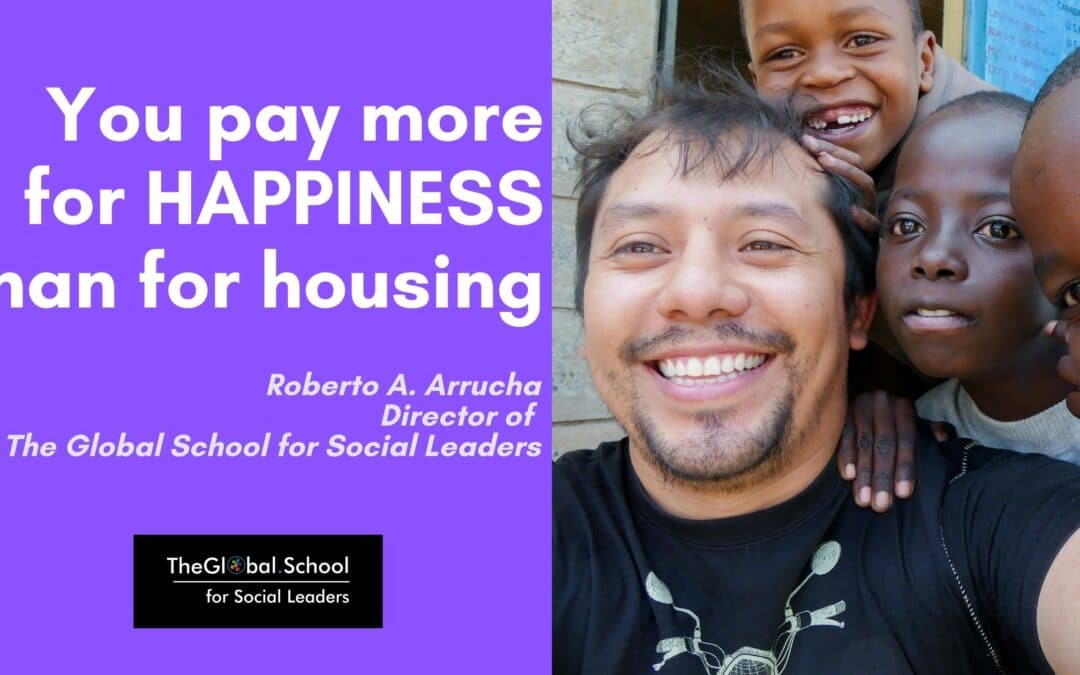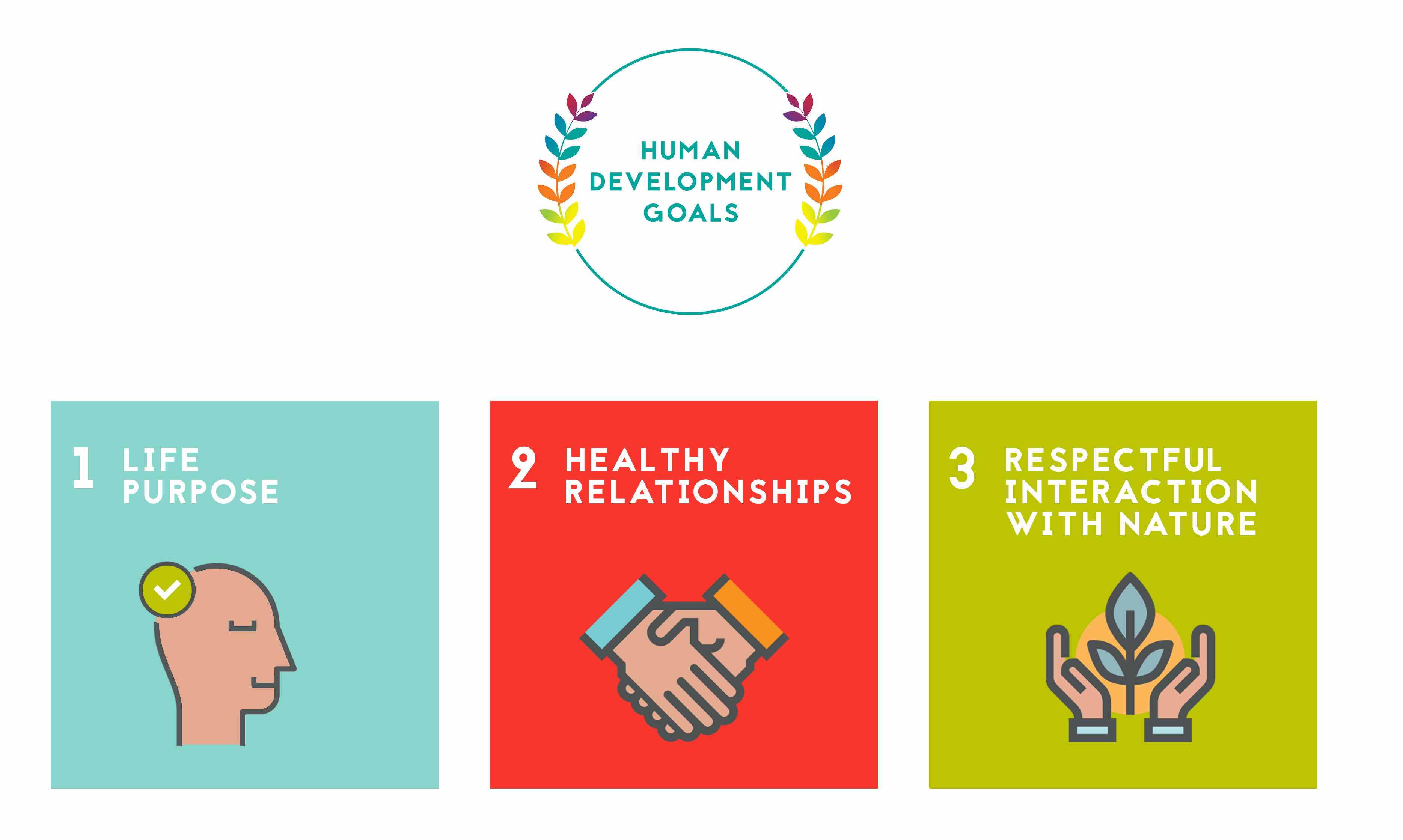
Happiness is expensive
Have you also seen the exponential surge of Wellness and Wellbeing courses, coaches, workshop, retreats, etc.?
COVID-19 is forcing us to rethink our wellbeing, however, we have crashed to the wall: Happiness is expensive, this is the case of Europe.
For some of us who come from the global south, we find the concept of happiness as a commodity, extremely weird and complex, more related to the industrialised world than a universal value. Now, everyone wants access to happiness, but none dare to challenge the status quo of an accumulation based society anxious by consumerism:
Like working out harder to lose weight but keep eating pizza every night.
–
You are paying more for “happiness” than taxes.
Recently, a study was released about how expensive is Happiness in Europe, published by Mckinsey: The pandemic’s negative impact on well-being in April was up to 3.5 times the losses experienced in GDP; This means, for every euro lost due to the economic burden, 3 euros were lost due to life-dissatisfaction. 1
For example, If you are earning a salary of 2,700 euros per month, the economic collapse due to COVID-19 wiped out on average 540 euros of that salary, but your life-dissatisfaction wiped out 1,620 euros, transforming your real salary into 1,080 euros per month or a cut of 60% of your salary! 1
Happiness is expensive in Europe and getting more and more expensive. If you embed this, into the ecological footprint of every European country, consuming 3 up to 9 countries available resources, or per capita: 2.8 planets for satisfying the European consumer 2, turns out that European happiness is expensive, luxury, exclusive and an unsustainable goal, near 10 times more expensive than any other human in the world (Except USAmericans).
Furthermore, if you consider the high addiction of alcohol and drugs in Europe, 200% higher than in the global south countries 3, you start to draw a better picture of the problem:
OurExpensive, Destructive and Non-sustainable life-dissatisfaction for ourselves and the planet.
–
What about the world happiness report? Well, it just confirms it.
Even the WHP, where Europe ranks on top, acknowledges this: Industrialised societies relies mainly on GDP and income for their life-satisfaction, reducing happiness to a simple commodity.
Unlike the Happy Planet Index, placing our ecological footprint and personal wellbeing as the key components of life satisfaction, ranking on top the countries close to the Ecuador.
One more interesting ranking is the Gross National Happiness from Buthan, you can read more about this amazing concept in a post shared by my friend Jurgen Nagler, UNDP head in Buthan.
–
Are we ready for a shift?
Communities around the world are begging rich countries to reduce consumption, and learn how to live happier and sustainably, like the campaign from the Himalayas #ILiveSimply, where people highly hit by climate change, are joining to call the world in a single shot out:
“Please live simply, so others can simply live¨
Now we see funded research, training, certifications, workshops, etc. An army of persons is trying to incorporate wellbeing to their everyday life, but at the same time, they find themselves caught in a complex system based on high consumption fuelled by an anxious economy.
As a foreigner in this land, I often face the same feeling when another foreigner goes to my country and I find out that people still buy water in plastic bottles for survival.
Water is a human right, and it should be available cost-free. Can happiness be considered as essential as water for our existence?
–
I want to believe that all this wellbeing, wellness and happiness movement in Europe and industrial countries are based in an inside-out transformation for the well of our relationship with ourselves and our planet, but numbers say otherwise, maybe moments of happiness will become another commodity in this accumulation-based society.
In only a few weeks of reduced physical exercise, heightened stress and anxiety, limited access to diagnostics and care are likely to have longer-term health consequences for every European resident, which eventually will turn out in a public health issue and a priority for policymakers.
–
How can policymakers design real wellbeing policies after a long tradition of enlightenment and individual responsibility?
How can governments think not only beyond GDP but activities, incentives and metrics for a mentally healthy society? Is possible a European policy on living happily with less? Happiness is expensive and is getting out of control.
Furthermore, how can Europe think about holistic development and personal wellbeing in the middle of a technological war where Europe has decided to stand up and oil the economic machinery as a geopolitical strategy, putting even more pressure to its taxpayers (aka citizens).
It´s an unknown territory where there is no book or manual written, where it´s finally time to open our minds into a more holistic approach on the development, more human and less economical, on how other cultures live more prosperous with less impact in their mental health and the health of the planet.
–
A New Formula of Happiness. Our development framework.
After more than 10 years of working in more than 20 countries across 4 continents, and having a sensitive understanding of what the most satisfying cultures have in common,
I have summed them up in 3 easy goals: the Humanity Development Goals (HDGs), an inside-out invitation to rethink development in a holistic way rather than a single policy intervention. The HDGs complement and go beyond The Sustainable Development Goals (SDGs).
This framework, along with our Purpose-Driven Leadership methodology, is the reason why The Global School and our global community of Consultants & Educator have been awarded and recognised for: An holistic, post-colonised, friendly and realistic approach to sustainable development for all.
Roberto A. Arrucha
Director & Founder of The Global School for Social Leaders
Sources:
1. Mckinsey Group. Report: Well-being in Europe: Addressing the high cost of COVID-19 on life satisfaction: https://www.mckinsey.com/featured-insights/europe/well-being-in-europe-addressing-the-high-cost-of-covid-19-on-life-satisfaction
2. Footprint Network Report 2019.
3. Our World in Data. https://www.footprintnetwork.org/content/uploads/2019/05/WWF_GFN_EU_Overshoot_Day_report.pdf




